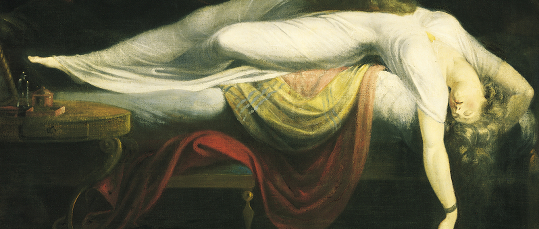[content note: discussion of violent hate crimes, e.g. lynching; quoting white supremacist killers]
On June 17th, a white supremacist murdered 9 black people at a historical black church in Charleston, NC. A survivor of the massacre reported that the killer told the church: “I have to do it. You’re raping our women and taking over the country.”[1]
So, first of all, let me make it absolutely clear that I categorically repudiate this use of my body as a justification for racist violence. I am hereby publicly stating my rejection of the spurious and racist “protection” from people who are no harm to me, by people who are much more likely to be a danger to my bodily integrity. And I urge white women everywhere to take that very same public stand.
But, as stated in what I believe is the facebook post that started the #NotInMyName / #NotInOurNames hashtags[2], the public rejection of this argument can only be a beginning. We white women need to talk about this; we need to talk about the fact that “raping our women” has been a tool of white, colonialist patriarchy for a very long time[3]. The racial and sexual “purity” of white women, the chivalric protector-role of white men, and the imagined animalistic aggressiveness of non-white men together constitute an important framework for the hierarchies of white patriarchy. When these hierarchies are threatened, anti-black violence in white woman’s name becomes the means to re-establishing them:
Lynching for rape upheld white privilege and underpinned the objectified figure of white women defined as “ours” and protected by “us” from “them” (Fraiman 1994, 73). These beliefs formed what Fraiman (73) calls the white chivalric phallacy: preservation of what masculine supremacy was refigured as protection of white females for white males. […] In this view, interracial sexuality destroyed what it meant to be a man because white masculinity was inextricably linked to race: To be a man was to be a white man who had sole access to, and the duty to protect white women. The lynching and castrating of African American men, founded on the protection of white women, was central to securing white male power and identity and, thereby, reconstructing a hierarchical masculine difference between white and African American men. [4]
Meanwhile in Europe, the same sentiment appears additionally as anti-immigrant xenophobia and islamophobia. Anders Breivik, the man who killed 77 people in Norway in 2011, was a white supremacist. Part of the extensive copypasta that is his manifesto dealt with the notion of an epidemic of Muslim immigrants raping white women:
The incidence of rapes carried out by Muslim men in Norway against non-Muslim women is many times higher than rapes by non-Muslim men. The rape frequency in e g Oslo per capita is said to more than five times higher than in New York City. And two thirds of these rapes are committed by immigrants even though they still constitute a rather small part of society.
In Brussels, Belgium, gangs of Muslim immigrants harass the natives on a daily basis. We have had several recent cases where native girls have been gang raped by immigrants in the heart of the EU capital. [5]
And let me repeat that this “white chivalric phallacy” is inherent to white colonialist patriarchy. It’s not just fringe elements and “lone wolf” mass murderers; it’s not just something from the history books of Reconstruction in the US. It is found ubiquitously, with not even much of an effort to hide it via dogwhistles. To use one example from the secular/atheist/skeptic community: Pat Condell, a YouTube personality once heartily endorsed by e.g. Richard Dawkins and still disturbingly popular in some atheist/skeptic spaces was one of the voices popularizing the meme of Sweden as the new “rape capital of Europe”[6] far and wide enough that it can still be commonly found in atheist discussions on any vaguely related topics. Similarly, the effects of this white chivalric phallacy are everywhere: George Zimmerman not being convicted of murder[7]; misogynoir and the tolerance of violence against black women[8][9]; the entitlement-and-hate aspect of a lot of MRA/PUA toxicity[10], violence targeted at white women who’d date an “inferior, ugly black boy” over someone like Elliot Rodger who is, after all, “descended from British aristocracy”[11]; et cetera. Silence in the face of all this will let it continue. We need to have an ongoing conversation about how to destroy the white chivalric phallacy instead of being its acquiescent tool.
TL;DR: this was a white patriarchal mass murder. It was textbook “white chivalric phallacy”. White women have a responsibility to stand up and refuse to be used like that; not just as individuals rejecting such violence being done in our names, but as a social class rejecting, uncovering and ultimately deconstructing the systemic role in the oppression of men and women of color assigned to us by white patriarchy. That is solidarity; that is intersectional feminism. Let us not be silent and remain complicit with white patriarchy on this.
[1]http://www.nbcnews.com/video/church-gunman-reportedly-said-i-have-to-do-it-467402819802
[2]https://www.facebook.com/chelseypenny/posts/10152946111175642
[4]https://books.google.com/books?id=Ehf_uO7cMfMC&pg=PA89
[5]https://politicalaspects.wordpress.com/2013/11/10/accepting-immigrant-rape/
[6]http://socialistunity.com/the-unacceptable-face-of-secularism/
[7]http://mic.com/articles/55035/what-juror-b37-s-comments-reveal-about-white-womanhood
[8]https://thebodyisnotanapology.com/magazine/misogynoir-sexism-and-racism-in-the-lives-of-black-women/
[9]http://www.theguardian.com/commentisfree/2015/jun/18/charleston-shooter-black-women-white-women-rape


 Becca Thomas brings to Secular Woman over two decades of experience in advocacy, organization and fund development, as well as a passion for reproductive freedom. She is a former marketing executive and Sunday School teacher. Her journey from theism began in third grade while arguing with a classmate who insisted that if you do not believe in Santa, then you can not believe in God. Thomas continued delving into philosophical questions and became an avid student of world religions. In her late twenties, she made a break from the Church as well as the corporate world, and is now an adamant advocate for human rights. “Humanity would be better served by more compassion and less judgment, the very antithesis of what religion offers,” she says. Thomas will be leading Secular Woman’s project, @AbortTheocracy, a campaign to terminate the intersection of religious power over bodily autonomy and sovereignty by opposing religious influence in government.
Becca Thomas brings to Secular Woman over two decades of experience in advocacy, organization and fund development, as well as a passion for reproductive freedom. She is a former marketing executive and Sunday School teacher. Her journey from theism began in third grade while arguing with a classmate who insisted that if you do not believe in Santa, then you can not believe in God. Thomas continued delving into philosophical questions and became an avid student of world religions. In her late twenties, she made a break from the Church as well as the corporate world, and is now an adamant advocate for human rights. “Humanity would be better served by more compassion and less judgment, the very antithesis of what religion offers,” she says. Thomas will be leading Secular Woman’s project, @AbortTheocracy, a campaign to terminate the intersection of religious power over bodily autonomy and sovereignty by opposing religious influence in government. Writer and editor Julia Burke became a feminist at the age of twelve, when she visited her cousin, a law student, and found Susan J. Douglas’s Where the Girls Are: Growing Up Female with the Mass Media on her bookshelf and asked to borrow it. Atheism took a little longer; raised liberal-Protestant but exposed at a tender age to the fundamentalist beliefs of a reborn Christian relative, Burke was fascinated by faith but disturbed by its implications. She avidly researched several religions throughout her teen and college years before realizing that “none of the above” was not only a viable option but the only choice that made sense. While working as assistant editor at the Center for Inquiry she came to know and admire many prominent figures in the secular community, and became interested in the intersection between skepticism, secularism, and social justice. She joined Secular Woman in the fall of 2012.
Writer and editor Julia Burke became a feminist at the age of twelve, when she visited her cousin, a law student, and found Susan J. Douglas’s Where the Girls Are: Growing Up Female with the Mass Media on her bookshelf and asked to borrow it. Atheism took a little longer; raised liberal-Protestant but exposed at a tender age to the fundamentalist beliefs of a reborn Christian relative, Burke was fascinated by faith but disturbed by its implications. She avidly researched several religions throughout her teen and college years before realizing that “none of the above” was not only a viable option but the only choice that made sense. While working as assistant editor at the Center for Inquiry she came to know and admire many prominent figures in the secular community, and became interested in the intersection between skepticism, secularism, and social justice. She joined Secular Woman in the fall of 2012.